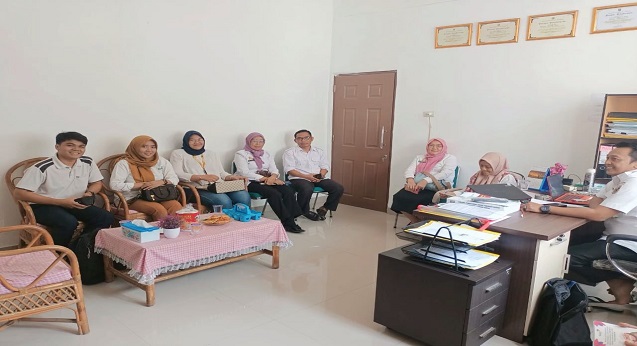Central Lampung, January 10, 2024 – The Central Lampung Regional Development Planning Agency (Bappeda), through the Head of Government and Human Development, Dedi Prasetyo, led a coordination meeting to evaluate the exit plan for the 2022–2023 stunting program in Terbanggi Besar District and to determine a new locus for 2024. The discussion also addressed synergy opportunities between the Community-Based Total Sanitation (STBM) program, the Sustainable Food House Area (KRPL) initiative, and Women Farmers Groups (KWT).
The meeting, held at the Bappeda Office Hall, was attended by representatives from Bappeda, the Education Agency, Health Agency, Food Security Agency, BKKBN, and PT Great Giant Pineapple (GGP). From GGP, the participants included Weni Puspa (PIC of the external stunting handling program), Vinka Rilasya, and Nanda Dita Syahpradana from the Sustainability team.
In his remarks, Dedi Prasetyo praised PT GGP’s structured and strategic approach in implementing the stunting reduction program in Central Lampung.
“The Central Lampung Government hopes that PT GGP can become a pioneer for other companies in adopting best practices to reduce stunting rates. We truly appreciate GGP’s sustainable CSR programs and their dedication to the surrounding community,” said Dedi.
Reni Puspitasari, Head of the Consumption and Food Safety Division, highlighted the important role of KRPL and KWT initiatives in promoting a healthy lifestyle through home-grown vegetables, which directly support stunting reduction.
“PT GGP has contributed significantly by building greenhouses, providing seeds, and supporting community agricultural development,” she added.
From PT GGP, Weni Puspa emphasized the company’s holistic approach in implementing the stunting program.
“We focus not only on nutrition, but also on education in parenting and lifestyle. We are grateful for the strong support from both government and local communities in driving this initiative together,” she explained.
The coordination also gathered proposals from village loci to prioritize sensitive interventions such as access to clean water and sanitation, parenting awareness, and improved nutrition. These inputs will receive special attention in the 2024 program planning, according to Dedi Prasetyo.

